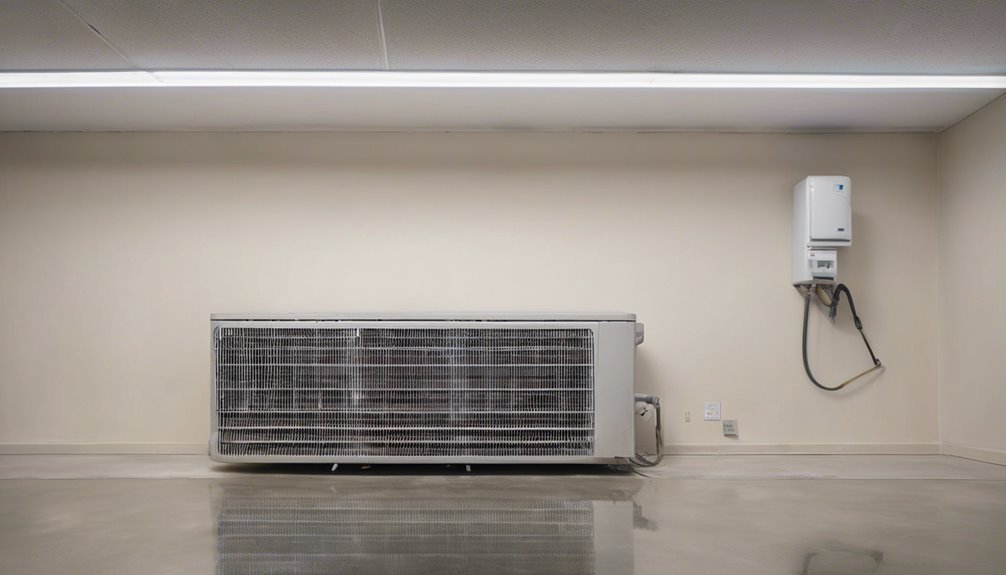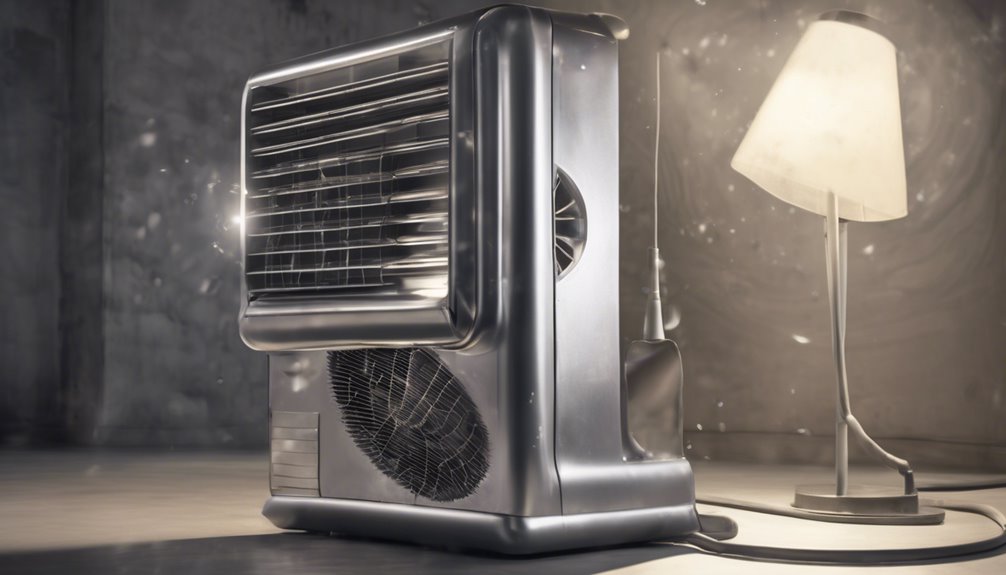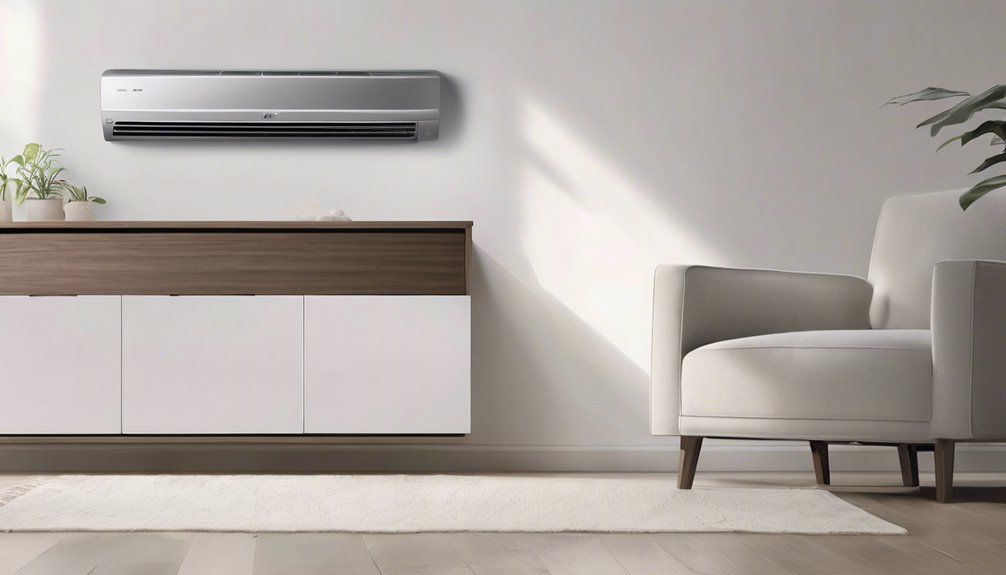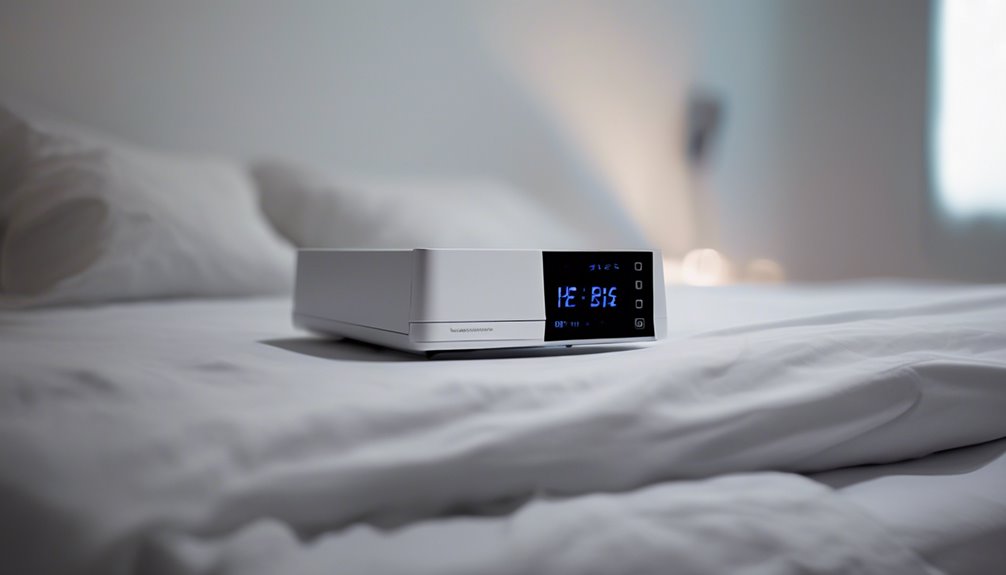If your AC isn't cooling after a gas refill, you're not alone. It's likely due to a common issue that's easily overlooked. You might have an incorrect refrigerant charge, a leak in the system, a faulty compressor or condenser coils, or clogged air filters or coils. Even thermostat malfunctions or other issues could be to blame. Check these potential causes and you might just find the solution. But if you want to get to the bottom of the problem, you'll need to dig deeper into each of these possibilities to find the root cause.
Key Takeaways
- If your AC isn't cooling after a gas refill, check for leaks in the system, as they can prevent the AC from cooling properly.
- Ensure the correct type and amount of refrigerant were used, as incorrect charging can cause AC malfunction.
- A faulty compressor or blockages in condenser coils can hinder cooling performance, so inspect and troubleshoot both components.
- Clogged air filters or coils can reduce airflow and impede cooling, so clean or replace them as needed.
- Thermostat issues, sensor malfunctions, or neglecting system maintenance can also cause AC performance issues, so check these potential causes as well.
Incorrect Refrigerant Charge
When you get your AC refilled with gas, you expect it to start cooling efficiently again.
However, if the technician doesn't get the refrigerant charge just right, your AC mightn't cool properly. Refrigerant mixing issues can occur when the wrong type or ratio of refrigerant is used, causing your AC to malfunction.
Incorrect refrigerant charge or mixing can cause AC malfunction, so it's crucial to get it just right.
Overcharging consequences can be severe, leading to reduced airflow, increased energy bills, and even compressor failure.
If you notice your AC isn't cooling after a refill, it's possible the technician overcharged or undercharged the system. Check your AC's specifications to ensure the correct refrigerant type and charge amount were used.
If you're still unsure, consult a professional to diagnose and fix the issue.
Leaks in the System
Beyond the refrigerant charge issue, another common culprit behind an AC's failure to cool after a gas refill is leaks in the system.
You'll need to identify and fix any leaks to get your AC running smoothly again. A thorough system inspection is essential to detect leaks, and pressure testing can help you pinpoint the exact location of the leak.
Here are some common areas to inspect:
- Weld joints and brazed connections
- Valve stems and fittings
- Schrader valves and caps
- Hoses and lines
Faulty Compressor or Condenser Coils
You're likely wondering if a faulty compressor or condenser coils are to blame for your AC's cooling issues after a gas refill.
If your compressor is on the fritz, you might notice symptoms like strange noises, overheating, or complete system shutdown.
Meanwhile, blockages in the condenser coils can also hinder cooling performance, so it's essential to inspect and troubleshoot both components.
Compressor Failure Symptoms
How can you tell if your compressor is failing or the condenser coils are faulty?
You'll likely notice some signs that indicate compressor wear.
Here are some symptoms to look out for:
- Compressor noise that's louder than usual or unusual sounds like clunking, rattling, or hissing
- The compressor takes longer to turn on or doesn't turn on at all
- The AC blows warm air instead of cool air, indicating the compressor can't cool the refrigerant properly
- You notice a significant increase in your electricity bill, which could be due to the compressor working harder than usual
Condenser Coil Blockage
If your compressor is failing, it's not the only potential culprit behind your AC's cooling issues.
Another common issue is a condenser coil blockage. You see, your condenser coils are responsible for dissipating heat outside.
But when dirt accumulation and debris obstruction occur, it hinders this process. As a result, your AC won't cool properly.
Check the coils for any signs of blockage, such as excessive dust, leaves, or twigs.
Clean the coils gently with a garden hose to remove any debris. Make sure to turn off the power to the AC unit before you start cleaning.
Clogged Air Filters or Coils
Dust and debris accumulation is a common culprit behind AC inefficiency, and a recent gas refill might've stirred up the problem.
As you investigate the issue, don't overlook the importance of clean air filters and coils.
Dirty filters and clogged coils can significantly reduce your AC's cooling performance, leading to blocked airflow and increased energy bills.
Dirty filters and clogged coils slash AC performance, causing blocked airflow and higher energy bills.
Check for the following:
- Dirty filters that need to be replaced or cleaned
- Clogged air vents that restrict airflow
- Frozen coils that prevent heat exchange
- Coils covered in dirt, dust, or debris that hinder heat dissipation
Thermostat Issues
Your thermostat is the brain of your AC system, controlling the temperature and regulating the cooling process.
But when it malfunctions, you'll experience temperature fluctuations that'll leave you sweating. Sensor malfunctions can trick your thermostat into thinking the room is cooler than it actually is, preventing the AC from cooling properly.
Check if your thermostat's sensor is dirty, bent, or misaligned. Clean or replace it if necessary. Also, ensure the thermostat is set to "cool" mode and the temperature is set low enough to trigger the AC.
If the issue persists, consider replacing the thermostat altogether. Remember, a faulty thermostat can lead to inefficient cooling, increased energy bills, and even system failure.
Other Possible Causes
Beyond thermostat issues, several other factors can prevent your AC from cooling after a gas refill.
You should also consider other possible causes that might be hindering your AC's performance.
- Neglecting system maintenance, such as cleaning or replacing air filters, can reduce airflow and impede cooling.
- Electrical issues, like tripped circuit breakers or blown fuses, can disrupt power supply to the AC unit.
- Refrigerant leaks or low refrigerant levels can prevent the AC from cooling effectively.
- Clogged condenser coils can also hinder heat transfer, leading to reduced cooling performance.
Frequently Asked Questions
Can I Reuse the Refrigerant That Was Removed From My AC Unit?
You're wondering if you can reuse the refrigerant removed from your AC unit. Unfortunately, it's not recommended as it may be contaminated. Instead, consider refrigerant recycling or system flushing to ensure purity and efficiency.
Will a Gas Refill Fix My Ac's Cooling Issue Immediately?
When you refill your AC's gas, you might expect an immediate fix, but it's essential to manage your cooling expectations. Refilling the gas doesn't guarantee instant resolution, as other underlying issues might still be at play, so don't be surprised if the problem persists.
How Long Does It Take to Diagnose an AC Cooling Problem?
You'll typically spend around 30 minutes to an hour diagnosing an AC cooling problem, but time constraints and diagnostic challenges can stretch that to several hours or even days, depending on the complexity of the issue.
Can I Perform an AC Gas Refill Myself to Save Money?
You're considering a DIY AC gas refill to save money, but beware of DIY risks, like incorrect pressure or contamination, which can lead to further damage and negate any cost savings.
Does a Gas Refill Come With a Warranty or Guarantee?
When you get a gas refill, you're probably wondering if it comes with a warranty or guarantee. Typically, a reputable service provider offers a service contract, while the manufacturer provides a guarantee on the refrigerant and equipment used.
Conclusion
You've refilled your AC's gas, but it's still not cooling. Don't worry, it's not uncommon. The issue could be an incorrect refrigerant charge, leaks in the system, or faulty compressor or condenser coils. Clogged air filters or coils, thermostat issues, and other possible causes might also be to blame. Identify and address the root cause, and your AC should be blowing cool air again in no time.



